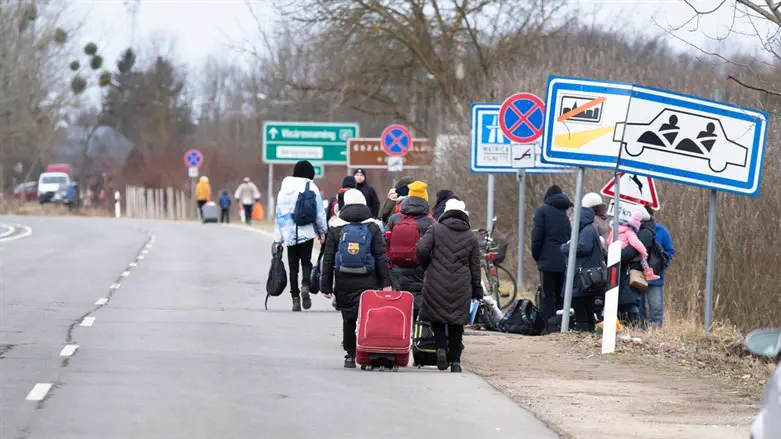
Following the breach of the Kakhovka dam in Southern Ukraine earlier this week, Ukrainian Jews are boarding buses and fleeing the country towards Poland.
While the flooding is damaging homes and wreaking havoc on critical infrastructure, it’s also creating an environmental crisis the war-torn region is already struggling to manage. Late Wednesday the Ukrainian authorities urged locals to only drink bottled water and avoid eating fish from the river. Both sides of the conflict have warned that minefields were likely flooded and have cautioned that landmines may have moved due to the floods. Nuclear watchdogs are worried that Europe’s largest nuclear power plant, Zaporizhzhia, which relies on the dam, is at risk of possible meltdown, only further imperiling those living and working in the area.
“Because of the war, our brothers and sisters in the Kherson Oblast area have already lost so much,” said Chabad of Poland Director Rabbi Sholom Ber Stambler. “We must do everything possible to help them during this difficult time and ensure that they don’t also lose their hope.”
Since the start of the Russian incursion into Ukraine, Chabad of Poland has been on the front lines, helping Jewish Ukrainian refugees resettle in Poland and serving as a spiritual waypoint for those resettling in Israel and other nations. Throughout their time in Poland, Chabad's locally-based emissaries have provided Ukrainian Jewish refugees in need with shelter, food, and religious services.
“Our team is already at work procuring the necessary food, accommodations, clothing and necessities to ensure the highest possible level of dignity and comfort for those en route from Ukraine,” said Chabad of Poland Co-Director Rabbi Mayer Stambler. “So many generous donors from across the Jewish world have already extended their offer of support for this group, and we’re working to ensure that the group is cared for upon their arrival.”

